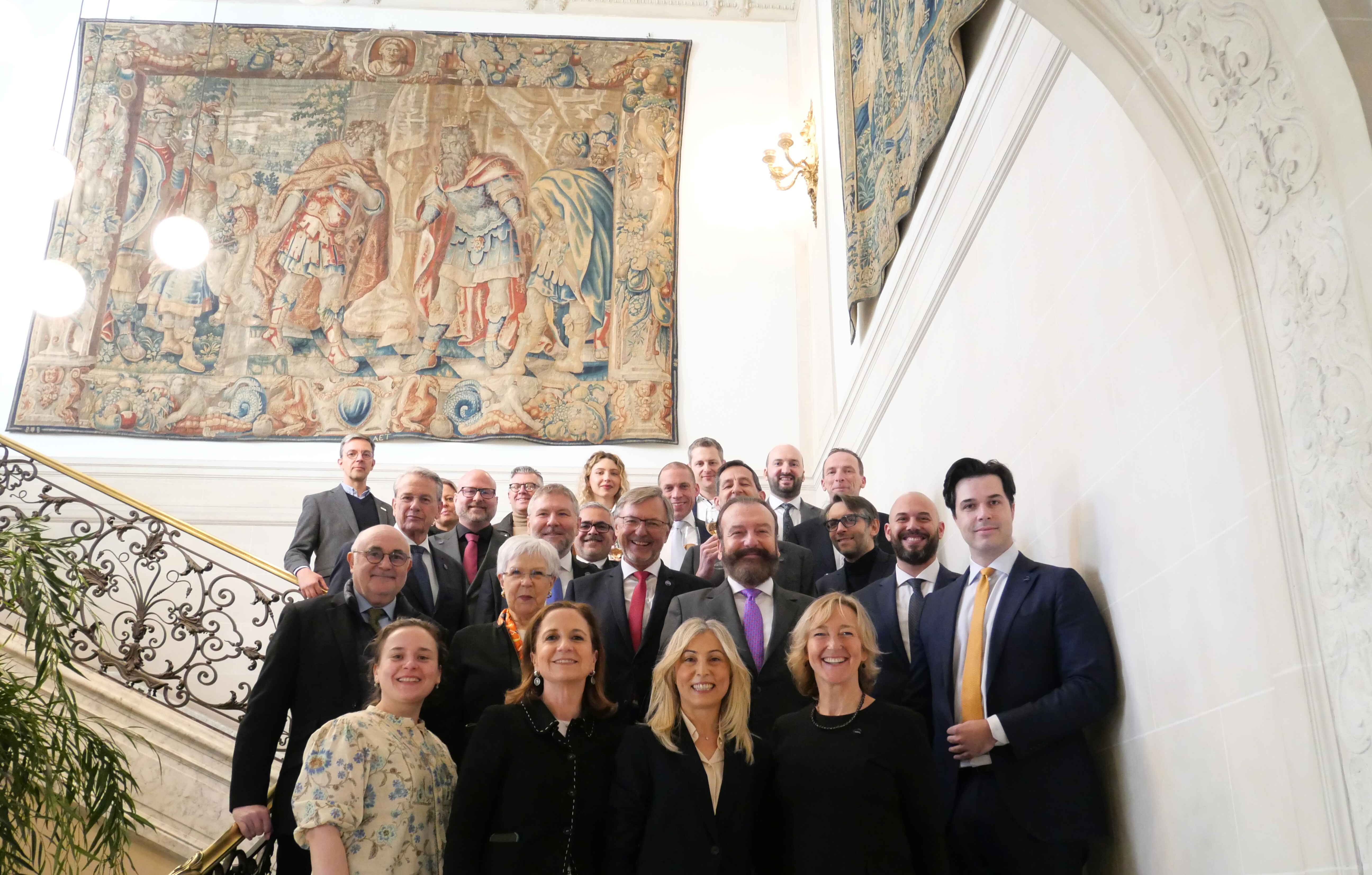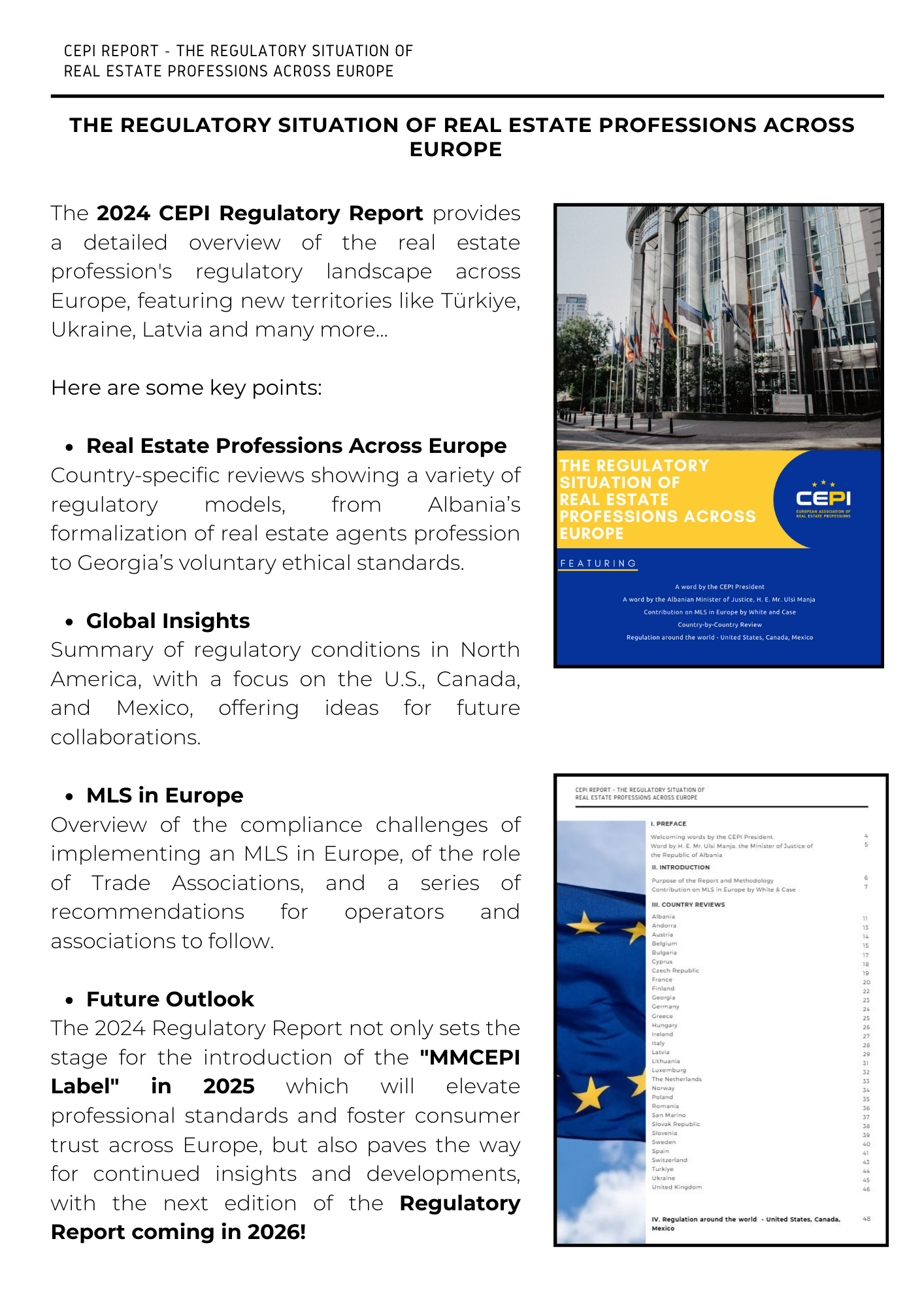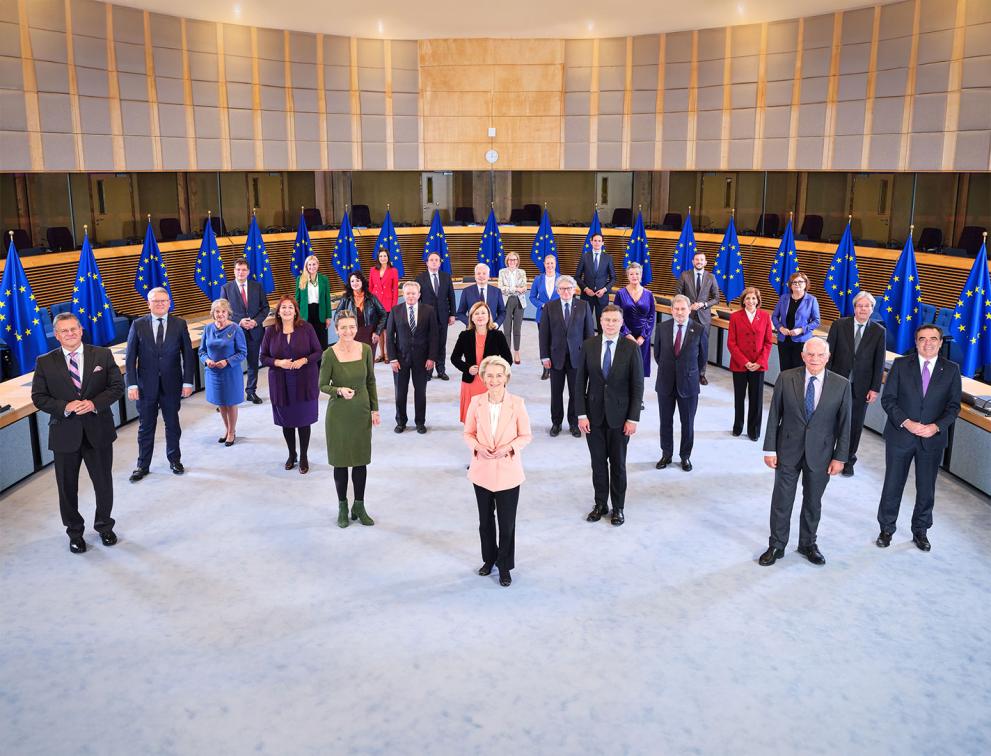NEWS
Official launch of MMCEPI Quality Label
The MMCEPI Real Estate Quality Label is a reality! On 18 February, the launch ceremony of the MMCEPI label was held in Brussels, in the presence of many CEPI members and with the kind participation of Mrs Vaidere and Mr Maran, members of the European Parliament, who honoured us with their presence.
The conference was a resounding success, demonstrating not only the strength of the leading European Real Estate family, but also the collective enthusiasm for this unique initiative.
The MMCEPI label is characterised by its ambition to guarantee standards of excellence in terms of efficiency, sustainability, and quality. It is a true mark of confidence for professionals and consumers alike, designed to highlight exemplary real estate initiatives and encourage best practices in the sector.
Event speakers underlined the importance of cooperation between the various public and private stakeholders to ensure on-going credibility and sustainability of the label. They also highlighted the promising prospects offered by this new quality label for structuring and strengthening the competitiveness of the sector, while meeting growing expectations in terms of quality and innovation.
In conclusion, this day marked a decisive stage in the further development of the united European Real Estate family. The prestigious setting of De Warande helped to make this a memorable event, full of hope for the future of our sector.
The 2024 Edition of the “Regulatory Situation of Real Estate Professions across Europe” is Now Available!
We are pleased to announce the release of the new edition of CEPI’s report, “The Regulatory Situation of Real Estate Professions across Europe” ,an in-depth analysis of European real estate sector regulations. Exclusively available to CEPI members, this report is a valuable resource for understanding the evolving regulatory landscape impacting the real estate professions.
The 2024 edition offers country-by-country insights and examines emerging regulatory trends that shape the real estate profession worldwide, together with expert contributions on the development of Multiple Listing Services (MLS) in Europe and insights into global regulations, including those in the United States, Canada and Mexico.
CEPI members can now access this year's edition to stay informed and navigate effectively throught the latest industry standards.
Political Guidelines of the future European Commission
Following the re-appointment of European Commission President, Ursula von der Leyen, we are happy to be able to shed some light on the key political guidelines she has in mind for her new team of Commissioners.
Critical to underline for our sector is the intended appointment of a Housing Commissioner that should oversee a European Affordable Housing Plan, which includes the establishment of a pan-European investment platform dedicated to affordable and sustainable housing solutions.
Other guidelines include:
- The proposition of a new EU-wide legal status to help innovative companies to grow;
- Renewal of the inter-institutional agreement on simplification and better law making;
- Reduction of energy bills through the implementation of a Clean Industrial Deal ;
- An Artificial Intelligence Strategy for industrial advancement;
- The establishment of a Union of skills focusing on investment, adult and lifelong learning, skill retention and the recognition of different types of training to enable people to work across the EU ;
- The implementation of a Quality Jobs Roadmap which should support fair wages, good working conditions, training and fair job transitions for workers and self-employed people;
- Roll-out of the Social Climate Fund in order to support the development of an affordable and energy-efficient housing.
You can find more details about these guidelines through this LINK.
CEPI Joins Forces with the Construction 2050 Alliance
CEPI is excited to announce its new partnership with the Construction 2050 Alliance, a coalition formed in 2020 comprising over 50 European organizations representing various stakeholders in the built environment. This alliance is dedicated to advancing the interests and priorities of the broader construction sector on the European stage. As a prominent European association of real estate professionals, CEPI is honoured to contribute to this collaborative effort.
The Construction 2050 Alliance serves as a unified platform to coordinate collective political messages from across the construction value chain, amplifying the sector's political significance at the European level. CEPI's alignment with these principles underscores its commitment to advancing sustainable practices and advocating for the interests of real estate professionals across Europe.
We eagerly anticipate the opportunities this collaboration will bring and look forward to working closely with the Construction 2050 Alliance to drive positive change in our industry. For more information on the Construction 2050 Alliance, visit their website: https://euconstruction2050.eu



